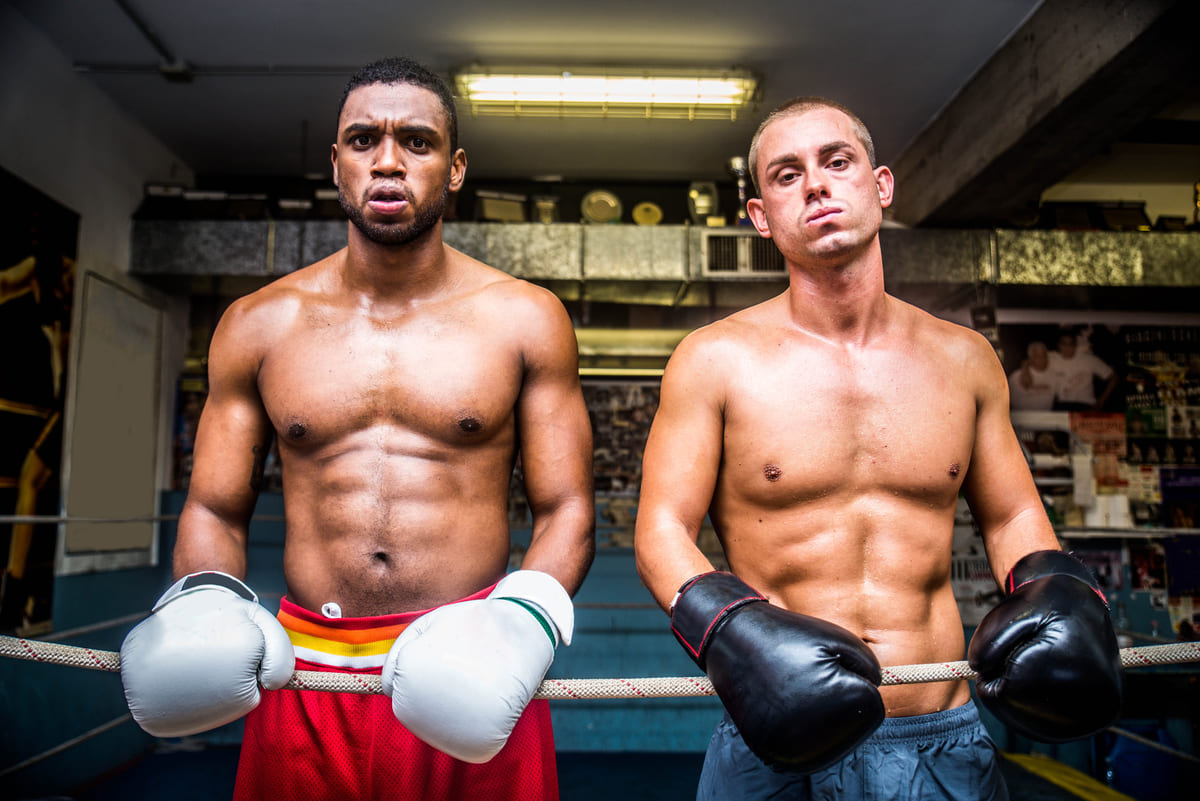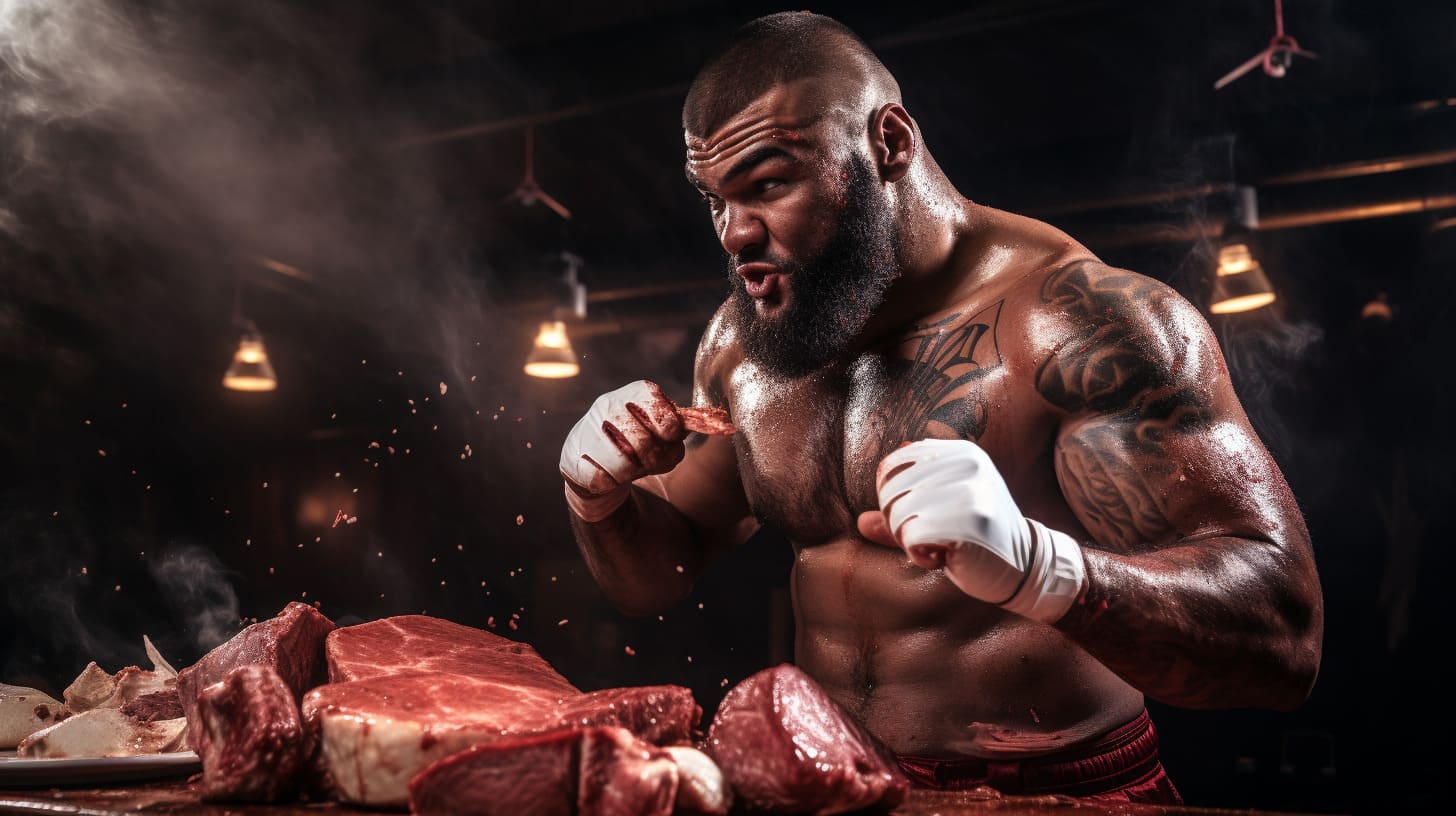Step into the ring as we reveal the knockout formula behind a winning boxing food diet.
Tired of feeling off your game in the ring? The secret to peak performance might just be your boxing food diet. In this guide, we’ll dissect the diet that fuels champions. From pre-fight meals to post-fight recovery, we’ve got you covered. Ready to elevate your boxing game? This is the boxing food diet guide you’ve been waiting for.
Stay tuned as we delve into the essentials of a boxing food diet, setting you on the path to nutritional victory.
The Importance of Diet in Boxing
Before you throw that next punch, let’s talk about the fuel that powers it—your boxing food diet.
When it comes to boxing, your skills in the ring are only part of the equation. The other half? Your boxing food diet. Nutrition plays an essential role in how well you perform, from your speed and agility to your endurance and recovery. A well-balanced diet rich in proteins, carbohydrates, and healthy fats can provide the energy you need to last multiple rounds. On the flip side, a poor diet can lead to sluggishness, muscle fatigue, and even cognitive delays, affecting your reaction time.

Hydration is another cornerstone of a successful boxing food diet. Water is essential for almost every function in your body, including muscle contraction and joint lubrication. Dehydration can severely impact your performance, leading to muscle cramps, fatigue, and impaired coordination. In extreme cases, it can even lead to heatstroke. Therefore, it’s crucial to maintain adequate fluid levels before, during, and after your training and fights.
In summary, your boxing food diet is not just about satisfying hunger; it’s about fueling your body for optimum performance and quick recovery. So, the next time you step into the ring, make sure your nutrition is up to par.
The 5 Essential Nutrients for a Boxer
Let’s get down to the nitty-gritty of what should be on your plate to make your boxing food diet a knockout success.
Carbohydrates
Carbohydrates are the heavy hitters in a boxing food diet. They serve as your primary source of energy, fueling those high-intensity workouts and aiding in recovery. But not all carbs are created equal. For sustained energy that lasts through your training sessions, opt for complex carbohydrates. Whole grains like brown rice and quinoa, as well as vegetables like sweet potatoes, should be staples in your diet.
Proteins
When it comes to muscle repair and growth, proteins are your best allies. Incorporating lean proteins into your boxing food diet is non-negotiable if you’re serious about your training. Options like chicken, turkey, and plant-based proteins like tofu and lentils provide the essential amino acids your muscles crave for repair and growth.
Fats
Don’t let the word “fat” scare you. Healthy fats are crucial for energy and cell construction. They also help in the absorption of fat-soluble vitamins like A, D, and E. Avocados, nuts, and olive oil are excellent sources of healthy fats that can enrich your boxing food diet.
Vitamins and Minerals
These are the unsung heroes of a balanced boxing food diet. Vitamins and minerals bolster your immune system, fortify your bones, and even help in energy production. Fruits like oranges and berries, along with vegetables like spinach and kale, are rich sources of these essential micro-nutrients.
Fibres
Last but not least, let’s talk about fibre. It aids in digestion, helps regulate weight, and can even lower cholesterol levels. Whole grains, greens, and fruits like apples and pears are ideal choices for adding fibre to your boxing food diet.
Building a Balanced Boxing food Diet
Ready to build a boxing food diet that packs as much punch as you do? Let’s dive into crafting the ideal boxer’s food diet plan.
Creating a balanced boxing diet is much like training for a fight; it requires planning, discipline, and a focus on the right techniques—or in this case, nutrients. An ideal boxer’s food diet plan is a well-rounded mix of carbohydrates, proteins, fats, vitamins, minerals, and fiber, each serving a specific purpose in enhancing your performance and recovery.
Example of an Ideal Boxer’s Food Diet Plan
Breakfast
- Whole-grain toast with avocado and a side of fruit
- Protein smoothie with banana, spinach, and a scoop of protein powder
Lunch
- Grilled chicken or tofu salad with a variety of vegetables
- Brown rice or quinoa as a side for complex carbohydrates
Snacks
- Greek yogurt with a handful of almonds
- Apple slices with a tablespoon of almond butter
Dinner
- Baked salmon or chickpea curry for protein and healthy fats
- Steamed vegetables like broccoli and carrots for vitamins and minerals
Post-Workout
- Protein shake with a small serving of complex carbohydrates like oatmeal
- Hydrate with water or an electrolyte drink to replenish lost fluids
The key to a successful boxing food diet is not just what you eat, but also when you eat it. Timing your meals and snacks around your training can make a significant difference in how you perform and recover. For instance, consuming a protein-rich meal or shake post-workout can speed up muscle recovery, while complex carbohydrates before training can provide sustained energy.
In summary, a balanced boxing food diet is not a one-size-fits-all approach but should be tailored to meet your specific training needs and goals.
Mastering Pre and Post-Fight Foods in Your Boxing Food Diet
Whether you’re gearing up for a fight or cooling down after a knockout, your boxing food diet plays a crucial role. Let’s explore how to optimize your pre and post-fight meals.

When it comes to boxing, the food you eat before and after a fight can be as important as the training you’ve put in. Your boxing food diet can significantly impact your performance in the ring and your recovery afterward. Let’s break down how to fuel up and wind down effectively.
Pre-Fight Foods: Carbohydrates for Energy
Before you step into the ring, carbohydrates should be your go-to nutrient. Carbs serve as the primary energy source that will fuel your muscles during the fight. Opt for complex carbohydrates like whole grains, fruits, and vegetables for sustained energy.
- The Night Before the Fight: Carb-loading is crucial. Opt for complex carbohydrates like sweet potatoes or brown rice for sustained energy.
- Morning of the Fight: A light, carbohydrate-rich breakfast is essential. Think oatmeal or whole grain toast.
- Hours Before the Fight: Hydration is key. Sip water and avoid heavy meals.
Ideal Pre-Fight Meal Composition
| Time Frame | Meal Components | Example Foods |
|---|---|---|
| Night Before | High Carbs, Moderate Protein | Sweet Potatoes, Grilled Chicken |
| Morning | Carbohydrates, Low Fiber | Oatmeal, Banana |
| 2-3 Hours Before | Light Carbs, Hydrate | Yogurt, Water |
My experience with caffeinated drinks:
During my boxing days i’ve noticed that drinking a coffee or a energy drink befire a boxing match helps to clear my focus and improve my alertness. Although make sure you stick to one or two because it could cause jitterness or an elevated hearthrate which will works against you.
Post-Fight Foods: Protein for Muscle Recovery
Once the fight is over, your focus should shift to recovery, and protein takes center stage here. Proteins are essential for repairing the muscle tears that naturally occur during intense physical activity.
Carbs for Glycogen Replenishment Don’t forget about carbohydrates post-fight. Your body will have used up its glycogen stores, and replenishing them is crucial for quick recovery. Foods like whole-grain pasta, fruits, and even a glass of chocolate milk can be effective for glycogen replenishment.
Protein for Muscle Repair: Within 30 minutes, consume a protein-rich snack. A protein shake or a handful of nuts works well.
Examples
- Immediately after the fight: A protein shake with a piece of fruit.
- 1-2 hours after: A balanced meal with lean protein like chicken or tofu, complex carbs, and vegetables.
In summary, mastering your pre and post-fight meals in your boxing food diet can make a world of difference in your performance and recovery. Tailoring your nutrient intake around your fights will help you step into the ring with confidence and recover with ease.
Conclusion: Your Boxing Food Diet—The Cornerstone of Success
As we wrap up this knockout guide, let’s recap why your boxing food diet is the unsung hero of your boxing journey.
Your boxing food diet is not just a supplementary part of your training; it’s a cornerstone that can dictate your performance, stamina, and recovery. From understanding the essential nutrients like carbohydrates, proteins, and fats to mastering the art of pre and post-fight meals, we’ve covered the A to Z of building a balanced boxing food diet.
Remember, the key to a successful boxing food diet is not just what you eat but also when you eat it. Timing your meals and snacks around your training and fights can significantly impact your performance and recovery. And while the general guidelines are helpful, always listen to your body and adjust your diet according to your specific needs and goals.
So, the next time you lace up those gloves and step into the ring, know that you’re not just fueled by your training but also by a well-planned boxing food diet. Here’s to your nutritional and athletic success!
Frequently Asked Questions (FAQs) about Boxing Food Diet
How does a boxer's diet differ from a regular fitness diet?
A boxer's diet is more focused on sustaining energy levels for intense training and rapid recovery. It includes higher protein intake for muscle repair and more complex carbs for sustained energy, compared to a standard fitness diet.
What are the key components of a boxing food diet?
A boxing food diet typically includes lean proteins, complex carbohydrates, healthy fats, and plenty of fruits and vegetables. It's balanced to provide energy, aid in recovery, and maintain optimal body weight.
Are carbohydrates important in a boxing diet?
Carbohydrates are crucial for boxers as they provide the primary source of energy during training. Whole grains, fruits, vegetables, and legumes offer sustained energy release.
What Should I Eat Before a Boxing Match?
Before a boxing match, focus on complex carbohydrates for sustained energy. Foods like whole grains, fruits, and vegetables are excellent choices. Timing is crucial; aim to eat a balanced meal 3-4 hours before the fight and a lighter snack 1-2 hours before stepping into the ring.
How Can I Recover Quickly After a Boxing Match?
Post-fight recovery is all about protein and carbohydrates. Protein aids in muscle repair, while carbs help replenish glycogen stores. Opt for a protein shake immediately after the fight and follow it up with a balanced meal within 1-2 hours.
How Many Meals Should a Boxer Eat in a Day?
The number of meals can vary depending on your training schedule, but most boxers eat at least three meals a day. Snacks are also important to maintain energy levels. Protein shakes can serve as excellent in-between meal options, especially after intense workouts.
Is Hydration Important in a Boxing Food Diet?
Absolutely! Hydration is crucial for muscle function, joint lubrication, and overall performance. Aim to drink at least one gallon of water per day, and consider electrolyte drinks for quick hydration post-workout.
Can supplements play a role in a boxer's diet?
While a well-balanced diet is priority, supplements like whey protein, BCAAs (Branched-Chain Amino Acids), and omega-3 fatty acids can be beneficial. Always consult with a healthcare professional before adding supplements to the diet.
How should a boxer's diet change on training vs. rest days?
On training days, boxers may increase carbohydrate intake for energy and protein for muscle repair. On rest days, they might reduce calorie intake slightly, focusing more on nutrient-rich, lower-calorie foods.
Some helpful boxing diet food links
American Dietetic Association – “trusted nutritional guidelines”
WebMD on Sports Nutrition – “scientifically-backed sports nutrition”
Harvard Nutrition Source – “Harvard’s take on balanced diets”

